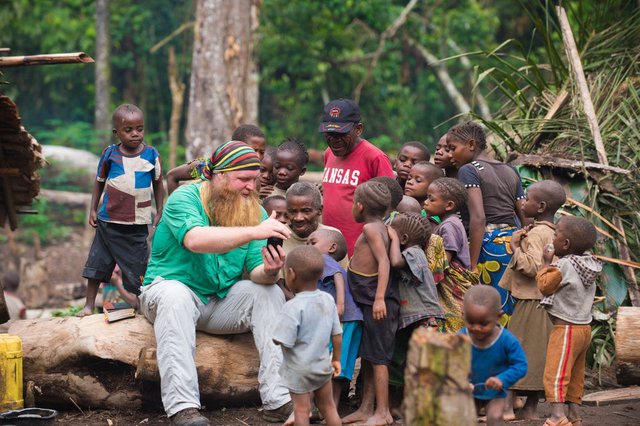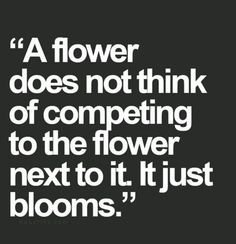Are We Born A Natural Competitive?
Are We Born A Natural Competitive?

Image Source
In Western culture, competition is so standardized it's no big surprise we think of it as the regular method of human relations. From youth, we're shown that we must be superior to every other person to be worth anything ourselves. Enterprises legitimize terminating specialists, denying them of sustenance and human services, so the organization can "stay competitive." Fortunately, it doesn't need to be like this. Industrial capitalism is just a single of thousands of forms of social organization humans have created, and with any fortunes it won't be the last. Clearly, humans are equipped for competitive behavior, yet it's not hard to perceive how much our general public empowers this and smothers cooperative behavior.
Innumerable societies all through the world have created cooperative forms of living that balance extraordinarily with the standards at work under capitalism. At this point, about these societies have been incorporated into the capitalist system through colonialism, subjugation, fighting, or habitat annihilation, yet various records stay to report the immense assorted variety of societies that have existed. The Mbuti seeker gatherers of the Ituri Forest in focal Africa have customarily lived without government.
Records by ancient historians propose the forest-dwellers have lived as stateless huntergatherers amid the season of the Egyptian pharoahs, and as indicated by the Mbuti themselves they have dependably experienced that way. In spite of basic depictions by pariahs, bunches like the Mbuti are not detached or primordial. Actually they have visit collaborations with the inactive Bantu people groups encompassing the forest, and they have had a lot of chances to perceive what as far as anyone knows propelled societies resemble. Backpedaling no less than several years, Mbuti have created relationships of trade and blessing giving with neighboring ranchers, while holding their way of life as "the children of the forest."
Today a few thousand Mbuti still live in the Ituri Forest and arrange dynamic relationships with the changing universe of the villagers, while battling to protect their customary lifestyle. Numerous other Mbuti live in settlements along the new streets. Coltan mining for PDAs is a boss money related motivating force for the common war and the habitat pulverization that is desolating the district and executing a huge number of occupants. The legislatures of Congo, Rwanda, and Uganda all need to control this billion dollar industry, that produces principally for the US and Europe, while miners looking for work originate from all finished Africa to set up camp in the area.

Image Source
The deforestation, populace blast, and increment in chasing to give shrub meat to the troopers and miners have exhausted nearby untamed life. Lacking sustenance and vieing for territorial control, troopers and miners have taken to doing outrages, including barbarianism, against the Mbuti. Some Mbuti are at present requesting a worldwide tribunal against human flesh consumption and different infringement. Europeans going through focal Africa amid their colonization of that landmass forced their own ethical system on the Mbuti. Since they just experienced the Mbuti in the villages of the Bantu agriculturists encompassing the Ituri forest, they expected the Mbuti were a primitive worker class.
In the 1950s, the Mbuti welcomed Western anthropologist Colin Turnbull to live with them in the forest. They endured his inconsiderate and unmindful inquiries, and set aside the opportunity to show him about their culture. The stories he relates depict a general public far outside of what a Western perspective considers conceivable. Around the time that anthropologists, and in this manner, Western anarchists, started to contend about what the Mbuti implied for their individual hypotheses, worldwide economic organizations were expounding a procedure of genocide that undermines to annihilate the Mbuti as a people. In any case, different Western journalists have effectively glorified or debased the Mbuti to deliver contentions for or against primitivism, veganism, feminism, and other political motivation.
In this way, maybe the most essential lesson to take from the account of the Mbuti is not that insurgency — a cooperative, free, and generally solid society — is conceivable, however that free societies are unrealistic inasmuch as governments endeavor to smash any take of autonomy, organizations finance genocide with a specific end goal to produce mobile phones, and as far as anyone knows thoughtful individuals are more inspired by composing ethnographies than battling back. In Turnbull's point of view, the Mbuti were undauntedly egalitarian, and a significant number of the ways they sorted out their general public lessened competition and advanced cooperation between individuals.
Social affair nourishment was a group undertaking, and when they chased frequently the entire band turned out. One half would beat the hedge toward the other half, who held up with nets to catch any creatures that had been flushed out. A fruitful chase was the aftereffect of everybody cooperating successfully, and the entire group partook in the catch. Mbuti children were given a high level of self-rule, and spent a lot of their days in a wing of the camp that was forbidden to grown-ups. One amusement they every now and again played included a gathering of little children ascending a youthful tree until the point that their consolidated weight bowed the tree towards the earth.

Image Source
The Mbuti customarily saw struggle or commotion as a typical issue and a risk to the harmony of the gathering. In the event that the disputants couldn't resolve things all alone or with the assistance of companions, the whole band would hold a vital ritual that regularly kept going throughout the night. Everybody assembled to talk about, and if the issue still couldn't be tackled, the adolescent, who regularly assumed the part of justice-seekers inside their general public, would sneak into the night and start rampaging around the camp, blowing a horn that made a sound like an elephant, symbolizing how the issue debilitated the presence of the entire band.
For an especially genuine question that had disturbed the gathering's harmony, the young may give additional articulation to their dissatisfaction by slamming through camp itself, kicking out flames and thumping down houses. In the interim, the grown-ups would sing a two-section harmony, developing a feeling of cooperation and fellowship. The Mbuti additionally experienced a kind of fission and fusion consistently. Regularly propelled by relational clashes, the band would separate into littler, more cozy gatherings. Individuals had the choice to consume room from each other instead of being constrained by the bigger group to smother their issues.
In the wake of voyaging and living independently for a period, the littler gatherings combined once more, once there had been the ideal opportunity for clashes to chill off. In the long run the entire band was brought together, and the procedure began once again. It appears the Mbuti synchronized this social vacillation with their economic exercises, so their time of living respectively as a whole band corresponded with the season in which the particular forms of get-together and chasing require the cooperation of a bigger gathering. The time of little, divergent gatherings agreed with the time when the sustenances were in season that were best collected by little gatherings spread all through the entire forest, and the period when the entire band met up related with the season in which chasing and assembling exercises were better refined by enormous gatherings cooperating.
Lamentably for us, neither the economic, political, or social structures of Western culture are helpful for cooperation. At the point when our employments and social status rely upon outflanking our associates, with the losers being fired or excluded without respect to how it harms their pride or their capacity to encourage themselves, it's not shocking that competitive behaviors come to dwarf cooperative behaviors. However, the capacity to live cooperatively is not lost to individuals who live under the destructive influences of state and capitalism. Social cooperation is not confined to societies like the Mbuti who possess one of only a handful few outstanding pockets of self-rule on the planet. Living cooperatively is a probability for every one of us at the present time.
Prior this decade, in a standout amongst the most individualistic and competitive societies in human history, state expert fallen for a period in one city. However in this time of disaster, with several individuals kicking the bucket and assets important for survival painfully restricted, outsiders met up to help each other in a soul of common guide. Sociological investigations have discovered that in almost all cataclysmic events, cooperation and solidarity among individuals increment, and it is everyday citizens, not governments, who deliberately do a large portion of the work doing salvages and securing each other all through the crisis.

Image Source

Not exactly,we make it competitive.as a human nature we want to be superior to others one.this really very bad nature,we all need to think we are human and we are equal.this is my point of view.
That was supposed to be since we are all created equal but what could be the possible reason why there are people that were oppressed?
Great piece and food for thought. I see it this way:

We should all do what we do best - to the best of our abilities, often that requires us to work together.
And yet those flowers are both beautiful and brings charm.
Congratulations @juvyjabian! You have completed some achievement on Steemit and have been rewarded with new badge(s) :
Click on any badge to view your own Board of Honor on SteemitBoard.
For more information about SteemitBoard, click here
If you no longer want to receive notifications, reply to this comment with the word
STOPHey @juvyjabian , would love to offer to come onto my podcast sometime.
It is about people doing remarkable things, whether entrepreneurs or not.
Where we talk about what you are doing, believe in and what difference you are making in the world.
It is part youtube channel where the mission is to help 1,000,000 entrepreneurs become remarkable, and the podcast acts as a way to share stories and connect with people.
Here is the playlist of the existing episodes: https://www.youtube.com/playlist?list=PL5CpCNPna6p95oJfKPew0N3ZT0k-khdgg
It is audio only over skype. Would love you to come on the show and talk about yourself. Does this sound of interest to you?